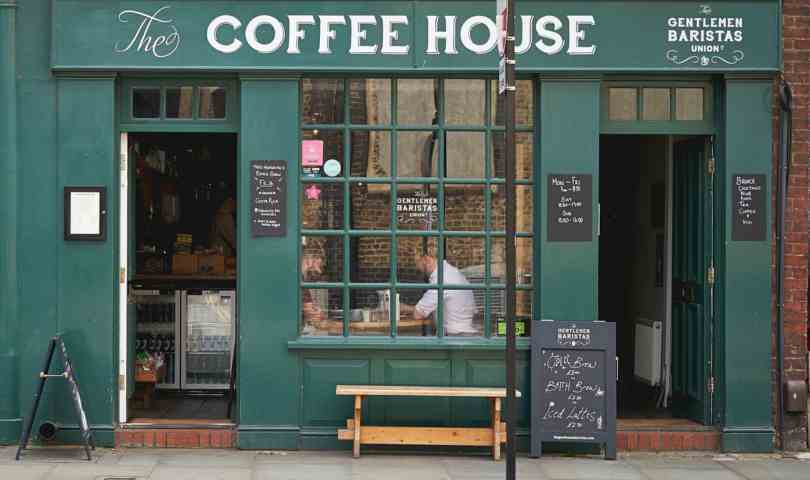Accommodation and food service SMEs cut their payroll overhead fast after lockdown. Nick Mulcahy delves into the financial impact of ongoing non-personnel overheads
Just how bad is the financial crisis facing owners of businesses in the accommodation, bars and food service sector? The answer is very alarming, especially given the glacial unwinding of lockdown restrictions decided on by government last weekend.
Central Statistics Office data published in September 2019 counted the number of enterprises that operate food, drink and accommodation services such as cafes, coffee shops, bars, restaurants, takeaways, hotels, B&Bs etc in 2017. Their tally was as follows:
MICRO 0-9 persons engaged
Enterprises: 15,330
Employment: 43,000
SMALL 10-49 persons engaged
Enterprises: 3,200
Employment: 62,000
MEDIUM 50-249 persons engaged
Enterprises: 620
Employment: 60,000
LARGE Over 250 persons engaged
Enterprises: 44
Employment: 24,000
The total employment count across these enterprises was 189,000, a figure that has likely grown in recent years due to buoyant tourism. Much of this employment is dispersed to areas of the country that don’t benefit from Foreign Direct Investment.
The official business lockdown commenced on March 15 when pubs were urged to shut their doors. Restaurants and hotels quickly followed suit and had no choice about the matter from March 27.
The current lockdown unwinding timeline calls for restaurants to re-open from June 29, hotels from July 20 and bars from August 10. This will mean restaurants will have had no trade for 14 weeks, hotels will have had no trade for 17 weeks and bars will have had no trade for 20 weeks.
The business lockdown coincided with the introduction of the Pandemic Unemployment Payment on March 13, initially at a rate of €203 a week and then raised to €350 from March 27. Also on March 27 the wage subsidy scheme was introduced to encourage employers to keep staff on the payroll rather than lay them off.
PUP has been a major benefit to people who lost their employment in accommodation and food services. The Department of Employment Affairs and Social Protection says that 129,000 people formerly working in the sector are claiming the benefit. Circa 35,000 workers in the sector are having their wages subsidised, and altogether it is estimated that 90% of all workers in accommodation and food service are now benefiting from state supports.
For individuals, the state has stepped into the breach. The wage subsidy scheme has also been a big help to employers. PUP is currently scheduled to terminate on June 8, while the temporary wage subsidy is a 12-week scheme currently scheduled to terminate on June 19. On the current trajectory, laid-off hospitality workers are in for a land after that, while employers availing of the subsidy scheme will have a tough call to make.
Non-Personnel Overheads
It’s clear that hospitality employers acted decisively to reduce their payroll overhead once the lockdown hammer came down. However, Central Bank economists calculate that personnel costs account for 40% of total expenses in accommodation, bars and food services ventures. The other overheads include rent, rates, tax, insurance, marketing, trade credit, debt repayments, finance leases and utilities.
For these non-personnel expenses, enterprises are more or less on their own. The sole giveaway concession from government has been a waiver of three months of commercial rates, and for the rest business owners require bilateral engagement with their creditors.
Government has leaned on banks to cut borrowers some slack on repayment terms, and Revenue is promising to be accommodating too about tax liabilities. These are debt deferrals, and firms that want to stay in the game are just going to have to absorb a hit.
How big a hit? The Central Bank drilled into CSO data to estimate Non-Personnel Overheads (NPO) for accommodation and food service ventures, and the data gives some indication of the financial strain.
For Micro firms, the average weekly NPO is €1,450, and that excludes whatever the business owners might be paying themselves or staff on top of the wage subsidy. For the average small coffee shop or bar therefore, that’s a 14-week hit of €20,300. As the figure is an average, the shortfall for many ventures will be much higher.
For Small firms in the sector, the average NPO is €11,700 per week. Into this category of under 50 employees fall your average restaurant or bar or even a small hotel. The NPO is bigger because the premises is larger, with all the attendant costs. Some of those costs such as utilities will have been crammed right down during lockdown. But even reducing the NPO to say €7,000 a week means the average hit to the restaurant owner is c.€98,000 from lockdown to re-opening.
For Medium hospitality enterprises, with 50 to 247 employees, such as many hotels, the average weekly NPO is €56,000. Again, even assuming this figure has been crammed down to €40,000 a week through lockdown, that still means a €680,000 hit to the bottom line from lockdown to re-opening.
Decision Time
If after re-opening trade returned to average trade in the same month in 2019, then that would be one thing. That’s not going to be the case, due to absence of overseas tourists and NPHET and the government’s insistence on two-metre social distancing rules.
For business owners in this sector, decision time is looming fast. The Central Bank estimates that around half of all SMEs may have enough cash to cover three to six months’ worth of expenses, excluding debt repayments.
Firms that don’t have reserves to absorb the lockdown hit will have to borrow to survive, and there are funding options available. They also know that trade is going to be grindingly slow for many months after re-opening, and it could be back to square one if the virus catches fire again.
For many entrepreneurs in this sector, their options are largely determined by their lease situation. If the lease has another three or five years to go, and is not backed up with a personal guarantee, then company liquidation will be a temptation.
More signals of hope from government would steel their nerve to persevere. A VAT reduction back to 9%, and preferably zero rate for 12 months as advocated by the Irish Hotels Federation, would seem to be a no-brainer. Accelerating the lockdown unwinding schedule, and curbing NPHET’s enthusiasm for uneconomical social distancing strictures, would also provide some solace.
If that doesn’t happen, then the 19,200 entrepreneurs managing Micro, Small and Medium enterprises that provide employment for 165,000 people in accommodation, bars and food service may conclude that government really isn’t that fussed about their fate.









